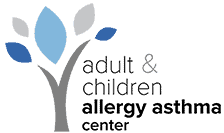- What is sinusitis?
- What are the symptoms of sinusitis?
- What causes sinusitis?
- How is sinusitis diagnosed?
- What are the treatments for sinusitis?
- Can I avoid sinusitis this year?
A sinus infection, also known as sinusitis, is not a permanent condition. Typically, the best remedy is time – with enough of it, the infection will run its course in most cases. Over-the-counter medications can ease the suffering associated with the infection during this time. However, more severe cases may need to be treated with antibiotics prescribed by a specialist.
To know when the infection turns into a case in which medical treatment is necessary, it’s important to better understand the condition.
What is Sinusitis?
Each year, about 35 million people experience the pain of sinusitis, which can cause the delicate tissues inside your nose, forehead, and cheeks to become painfully blocked passages where germs can grow and cause an infection.
The “itis” in sinusitis means “inflammation or swelling due to infection.” The “sinus” is where that infection occurs.
Your nasal sinuses are made up of four air-filled pockets behind the bones of your cheeks, nose, and forehead. The sinuses play an important role in moisturizing the inside of your nose with a mucus layer that helps protect you from breathing in dust, dirt, pollutants, and micro-organisms. The tiny cilia in the nose push those particles to the back of your throat and down to the stomach in a normally efficient bodily process.
Sinusitis can set in when these cavities become swollen, inflamed, and blocked. There are several phrases your doctor may use when describing sinusitis as a medical condition. For example:
- Acute sinusitis could flare suddenly, and feel, at least at first, like a cold
- Allergic sinusitis could occur seasonally, flaring up from allergies
- Chronic sinusitis lasts three months or longer
- Recurrent sinusitis happens multiple times throughout the year
- Sinus infection, which is the same as saying “sinusitis”
No matter the clinical diagnosis, sinusitis is an uncomfortable, if not downright painful, condition.
What Are the Symptoms of Sinusitis?
A stuffy, achy head from nasal blockage and sinus congestion is one of the most typical symptoms of sinusitis, but you will also likely experience:
- Aching in your jaw and teeth
- Bad breath
- Coughing and a dry mouth
- Difficulty breathing through your nose
- Difficulty smelling or an altered sense of smell
- Discolored nasal discharge
- Dizziness, especially upon bending over
- Ear pain or pressure
- Fatigue
- Fever
- Pain and numbness in the nose, cheeks, and forehead
- Postnasal drip
- Pressure and pain around the eyes
You may experience all of these symptoms, or just some of them, but no matter what, sinusitis is an uncomfortable illness that requires treatment.

What Causes Sinusitis?
We know the underlying physical component of sinusitis is that the nasal cavities inflame and become blocked. What makes them do this? There are all kinds of factors that put you at risk of developing sinusitis. They include:
- Allergies and hay fever
- A nasal passage deformity such as a deviated septum
- An underlying medical condition or immune system disorder
- Smoking or exposure to secondhand smoke
- The common cold
Occasionally sinusitis can cause other more serious complications such as infections of the skin or vision problems. Consult a doctor if you have symptoms that last longer than a week or a persistent fever.
How is Sinusitis Diagnosed?
Your doctor will do a general exam and look inside your nose. The doctor will also talk about the symptoms you’re experiencing and feel for tenderness on your face. In some cases, you may also undergo:
- Allergy testing to help determine what caused the inflammation
- Imaging studies like a CT scan to look at the underlying nasal structures
- Nasal endoscopy, where a thin flexible tube with a fiber optic light shows the inside of your nose
- Nasal/sinus samples are only necessary if the condition doesn’t respond to regular treatment
Once your illness has been diagnosed as sinusitis, what treatments are available?

What Are the Treatments for Sinusitis?
Typically, you won’t need antibiotics for sinusitis; even if the condition is caused by bacteria, it could clear up without it. With that said, sometimes highly persistent sinusitis symptoms may require antibiotics.
Antibiotics usually are prescribed for a three to 28-day course of treatment, depending upon the medication itself. If you receive an antibiotic, you may feel much better before you’ve run the course but don’t stop until the entire bottle is emptied. That will make it less likely that your symptoms recur. Keep in mind that the sinuses are deep cavities in the bones where the blood supply is more limited so the course of antibiotics may run a little longer in severe or chronic sinusitis.
Antibiotics treat the underlying infection caused by sinusitis but may do little to alleviate the uncomfortable symptoms of the illness. You can take over-the-counter medications that will help lessen the stuffy, drippy, headache, and pain of sinusitis.
Some of the other treatments to relieve sinus symptoms include:
- Antihistamines block the inflammation caused from an allergic reaction like hay fever Decongestants can be taken over-the-counter, in the form of nasal sprays, liquids, and tablets
- Nasal corticosteroids may prevent and calm the inflammation
- Over-the-counter pain relievers like aspirin, acetaminophen, and ibuprofen can relieve pain
- Saline nasal sprays to rinse out the nasal passages
In some cases, allergies are the underlying cause of the sinusitis. An allergist may prescribe immunotherapy (allergy shots) to lessen the body’s response to the allergy triggers that cause sinusitis.
If drug therapy fails and your doctor determines that the nasal passages are too narrow or the anatomical architecture itself is somehow formed improperly you may be a candidate for sinus surgery. A surgeon can remove nasal polyps, open closed passages, and fix bone defects in the nasal passages.
If you’ve been diagnosed with sinusitis there are also some self-healing steps that you can take at home to speed the recovery process, including:
- Getting plenty of rest
- Moisten your sinus cavities by breathing in steam
- Staying hydrated
Can I Avoid Sinusitis This Year?
There are a few things you can do right now to reduce the risk of sinusitis. It’s a good idea to avoid upper respiratory infections (including COVID-19) by washing your hands frequently with soap and water. Allergy management is another important way to lessen the risk of a chronic nasal inflammation that could lead to sinusitis symptoms. Avoiding smoking, which inflames and irritates the lungs and nasal passages could help. Finally, using a humidifier could also help if your home or office has forced-air dry heat. However, clean your humidifier regularly to be sure it says mold-free.
The Adult & Children Allergy Asthma Center is devoted to helping you and your family breathe a little easier every day. Click here to schedule your appointment today.



